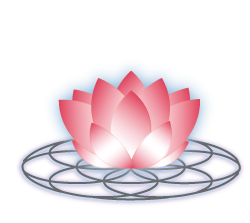Food Allergies vs Food Sensitivities
They use different immunoglobulins of the immune system causing different reactions, causing different reactions. Food allergies use the IgE immunoglobulin and food sensitivities use the IgG immunoglobulin (side note: Immunoglobulin will sometimes be switched with the word antibodies depending on what you’re reading). IgE reactions tend to occur faster and is also known as Hypersensitvity type 1; whereas, IgG reactions tend to be delayed (can take up to 3 days to get a reaction) and is also known as Hypersensitivity type 3 (PEDIAA, 2019).
IgE Immunoglobulin
Reaction causes release of histamine
Itching, hives, anaphylaxis, red skin
Reactions happen very quickly
Test: Skin Prick test, IgE Blood test
Through an Allergist
IgG Immunoglobulin
Reaction causes release of inflammatory mediators
Chronic inflammation (eg. eczema, bowel symptoms (constipation, stomach pains, diarrhea, etc), migraines, etc)
Reaction can take up to 3 days to occur
Test: Elimination Diet or Food Sensitivity Test
Through a Naturopathic Doctor
IgG reactions can manifest in different ways, and since they’re delayed, can be a little trickier to track, and therefore has a higher tendency to become chronic reactions. This in turn can lead to chronic inflammation, which can cause a number of other symptoms. IgG immunoglobulins have been seen in patients with allergic-like reactions (Shakoor, et al; 2016, Crowe; 2019)
Gut Health and Your Immune System
Your gut is exposed to the outside world, which makes it a key player in regulating your health. 70-80% of your immune system is found in your gut through GALT (Gut-associated lymphoid tissue) receptors. These are receptors found all over your intestines that communicate to different parts of your body by presenting foreign bodies (eg. bacteria, viruses, etc.) to the immune system to start building up an immune response (Microbe Notes, 2018).
Discovering Your Food Sensitivities
Both of these methods should be monitored by a qualified practitioner
Elimination Diet
Pros:
Understand how your body reacts to different foods
100% accurate with tracking and reintroduction phase
Cheaper
Cons:
Requires time and commitment
Takes 4-6 weeks of eliminations + the amount of time needed to reintroduce the foods
Can be difficult to see if a food causes a reaction if you are not in tune with your body or second guess yourself
Food Sensitivity Test
Pros:
Convenient
Good for people who like visuals or are analytical
Takes most of the guessing out of it
Cons:
Not 100% accurate
Is changeable depending on the health of your gut
Expensive
When I work with patients on these concerns, I ask my patients to fill out a questionnaire at the beginning before the eliminate the foods, and afterwards, so we can see things have shifted, and where they’ve experienced an improvement of symptoms. To better understand how to incorporate these into your life to discover your food sensitivities, book an appointment with your Naturopathic Doctor.
~ Dr. Charmagne

